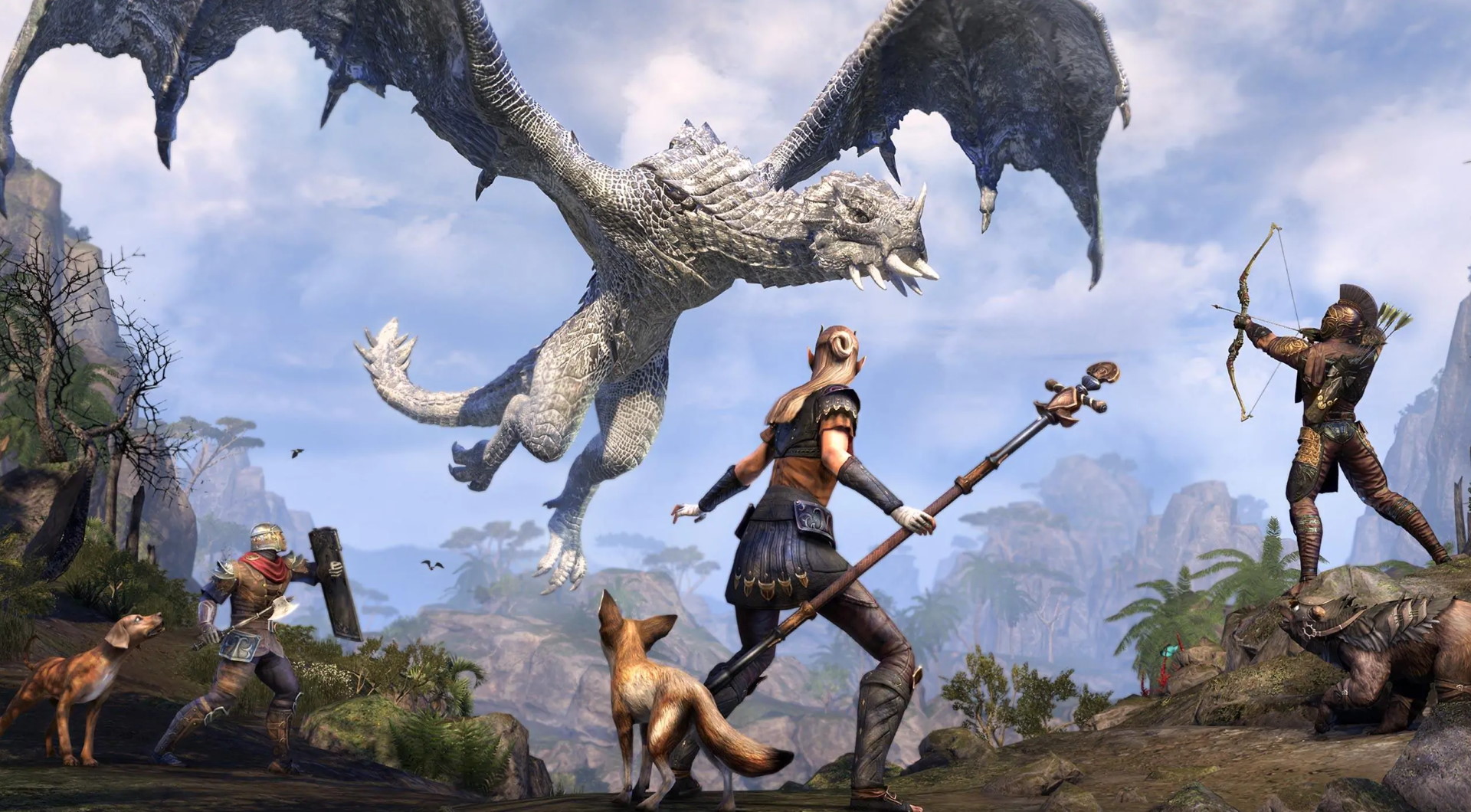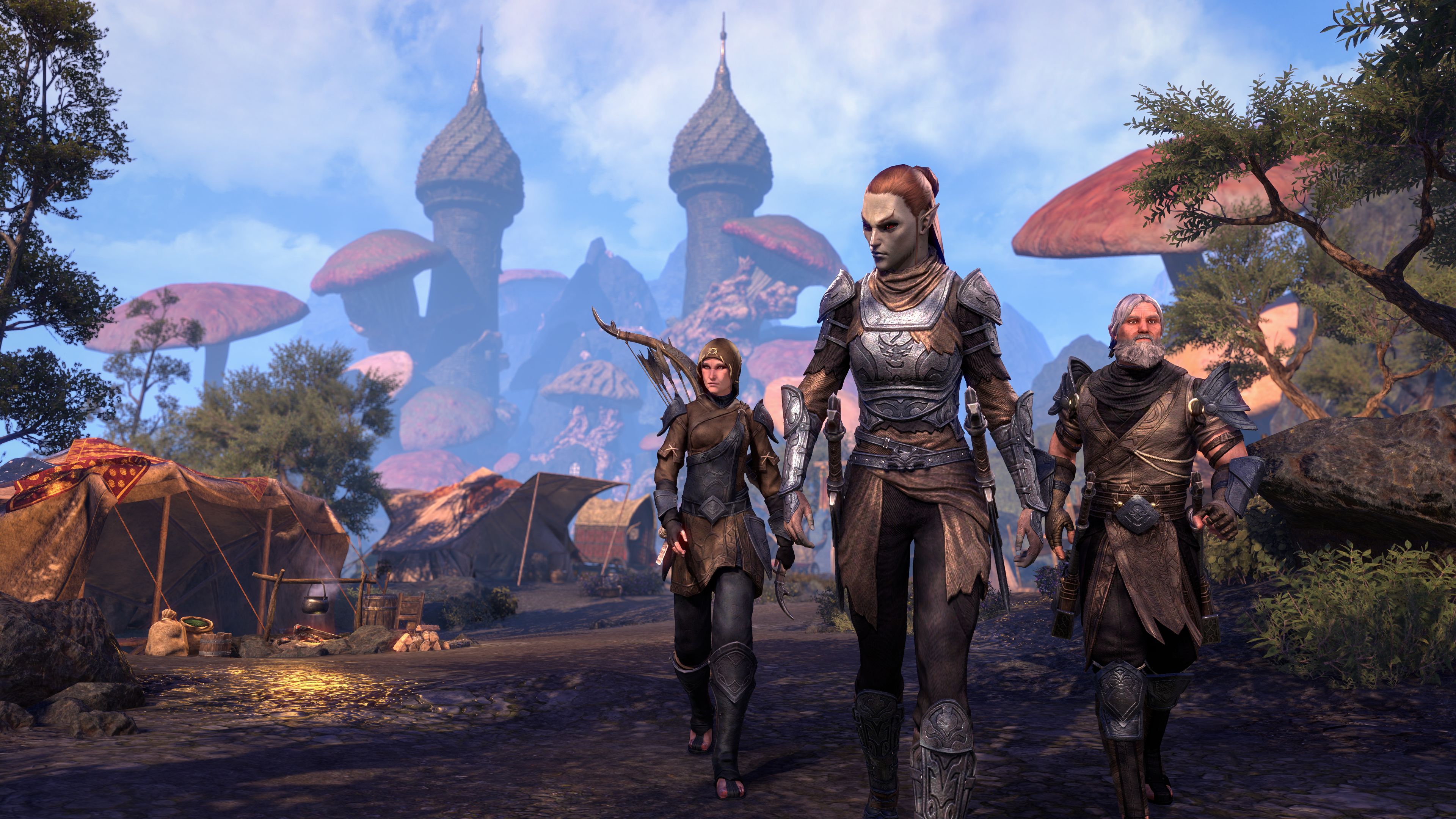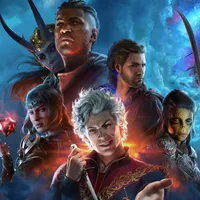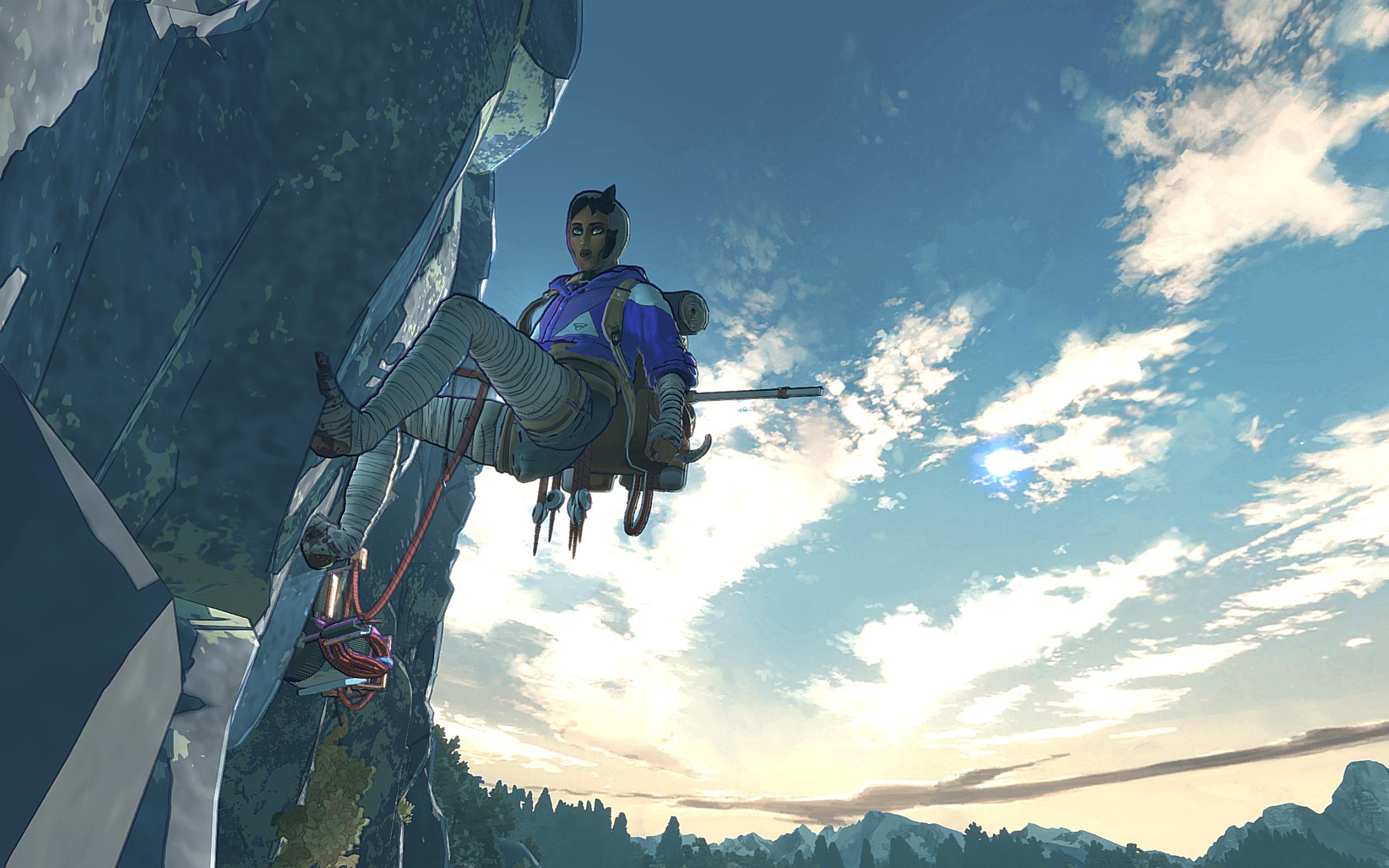The Elder Scrolls Online studio head says Microsoft's brutal cuts were 'super emotional… it was awful'
Despite the cancellation of Blackbird, still wants to make a new game.

In July this year, Phil Spencer said Microsoft's gaming business has "never looked stronger" as he simultaneously announced an absolutely brutal round of layoffs. Several studios were closed outright, games were cancelled, and almost everything in Microsoft's portfolio was touched in some way, with the aftershocks still coming.
One of the developers heavily affected was Zenimax Online Studios, the maker of The Elder Scrolls Online (TESO), which saw the cancellation of an MMO codenamed Blackbird alongside an unspecified number of layoffs. Such was the impact of the latter that, despite not being included in the initial round of cuts, long-serving ZeniMax president Matt Firor fell on his sword after 18 years as studio head.
"He wore a lot of different hats," says Rich Lambert, the new studio game director at Zenimax, in a new interview with GamesIndustry.biz. Firor's responsibilities have been split across Lambert and new studio head Jo Burba, who's "focused on the operational side of things, and I'm focused on a lot of studio-level things and future planning."
Some would speculate the layoffs are what lies behind Firor's departure and, while Lambert doesn't confirm this, he makes it clear this was not a good time at Zenimax. Reports suggested that staff were simply locked out of Slack and poorly informed about what was happening.
"It was super emotional, it was awful," says Lambert, adding that he'd worked with some of those affected for over a decade. "But then after, you pick yourself up off the floor and [...] you realize that we have this responsibility to our community, to the game, to everybody else that is still there to move forward. That's really hard, but that's the goal, to continue to move forward and keep ESO going."
As regards Firor, "I've been working with Matt for almost 20 years, and it was a shock to all of us," says Lambert. "But he's his own man. He's his own person. He gets to do that, and you respect him, right? He's been in the industry a long, long, long time."

Lambert unsurprisingly talks about how the focus is now on rallying the team around the idea that "the game is more than one person." Lambert says TESO itself is in "a bit of a transition year" with the team currently working on the game's next season: updates are becoming more regular, with the team hoping to have "smaller, more bite-sized things out quicker."
Keep up to date with the most important stories and the best deals, as picked by the PC Gamer team.
While the pace of updates is increasing, AI is not currently part of how Zenimax is building the game. "Obviously we've looked into it," says Lambert. "Microsoft has got their big push for AI. But we don't really use a lot of it right now. I use a lot of it for meeting summaries and whatnot, because it just makes my life easier. It helps organise my inbox and stuff like that. But we don't have a ton of it right now."
Beyond TESO, Lambert says Zenimax wants to work on new stuff, but doesn't say anything about Blackbird, which had reportedly been in development for many years. "I want to make more games," says Lambert. "I'm not done yet, and the team continues to want to make more games as well. I have lots of ideas. Hopefully we'll be able to share those at some point.
"I don't think you can ride one thing into forever. I mean, obviously we want ESO to be successful, we want it to be that 30-year MMO, and commit to it. But if you put all your eggs in one basket, there's issues."
2025 games: This year's upcoming releases
Best PC games: Our all-time favorites
Free PC games: Freebie fest
Best FPS games: Finest gunplay
Best RPGs: Grand adventures
Best co-op games: Better together

Rich is a games journalist with 15 years' experience, beginning his career on Edge magazine before working for a wide range of outlets, including Ars Technica, Eurogamer, GamesRadar+, Gamespot, the Guardian, IGN, the New Statesman, Polygon, and Vice. He was the editor of Kotaku UK, the UK arm of Kotaku, for three years before joining PC Gamer. He is the author of a Brief History of Video Games, a full history of the medium, which the Midwest Book Review described as "[a] must-read for serious minded game historians and curious video game connoisseurs alike."
You must confirm your public display name before commenting
Please logout and then login again, you will then be prompted to enter your display name.


